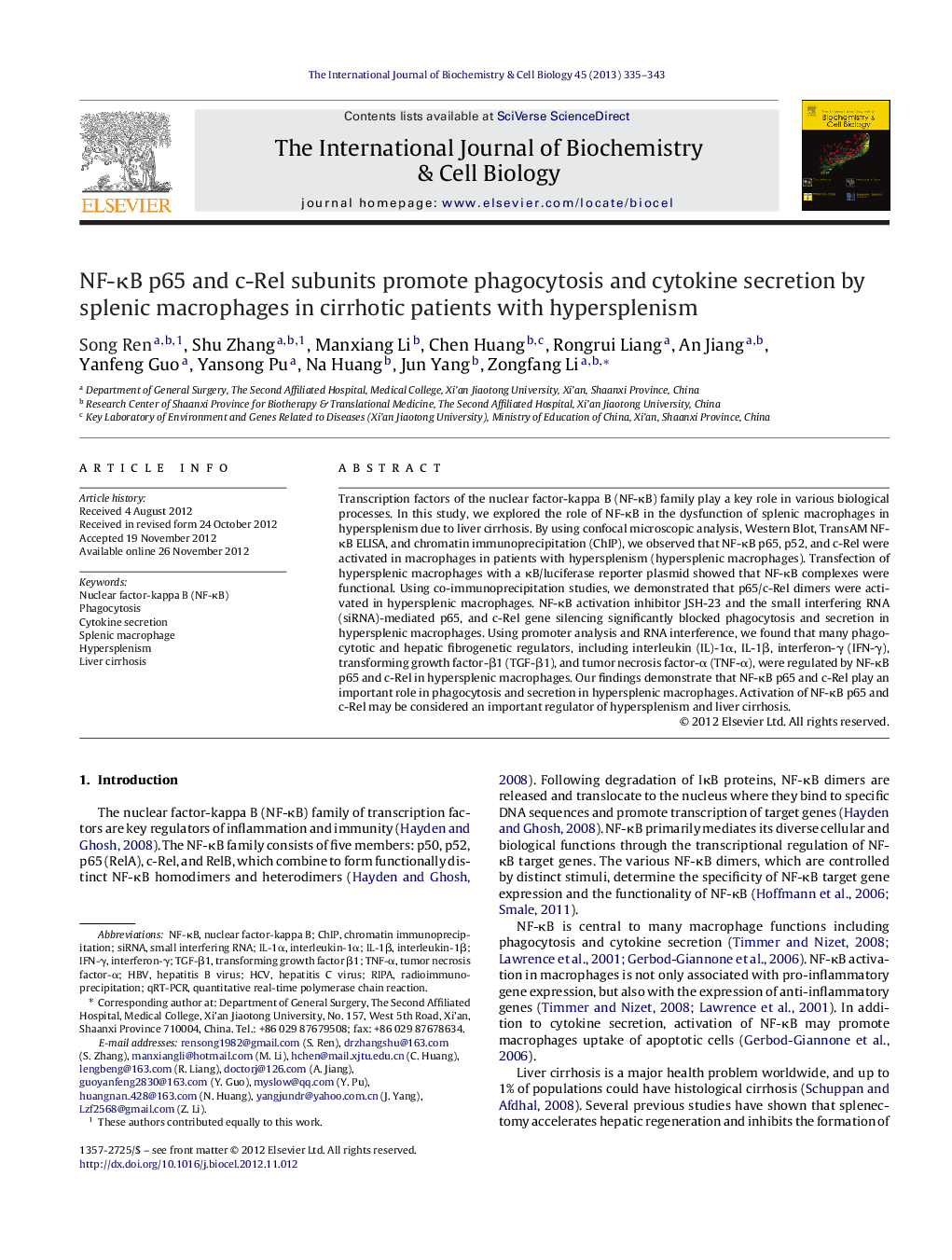| Article ID | Journal | Published Year | Pages | File Type |
|---|---|---|---|---|
| 8324403 | The International Journal of Biochemistry & Cell Biology | 2013 | 9 Pages |
Abstract
Transcription factors of the nuclear factor-kappa B (NF-κB) family play a key role in various biological processes. In this study, we explored the role of NF-κB in the dysfunction of splenic macrophages in hypersplenism due to liver cirrhosis. By using confocal microscopic analysis, Western Blot, TransAM NF-κB ELISA, and chromatin immunoprecipitation (ChIP), we observed that NF-κB p65, p52, and c-Rel were activated in macrophages in patients with hypersplenism (hypersplenic macrophages). Transfection of hypersplenic macrophages with a κB/luciferase reporter plasmid showed that NF-κB complexes were functional. Using co-immunoprecipitation studies, we demonstrated that p65/c-Rel dimers were activated in hypersplenic macrophages. NF-κB activation inhibitor JSH-23 and the small interfering RNA (siRNA)-mediated p65, and c-Rel gene silencing significantly blocked phagocytosis and secretion in hypersplenic macrophages. Using promoter analysis and RNA interference, we found that many phagocytotic and hepatic fibrogenetic regulators, including interleukin (IL)-1α, IL-1β, interferon-γ (IFN-γ), transforming growth factor-β1 (TGF-β1), and tumor necrosis factor-α (TNF-α), were regulated by NF-κB p65 and c-Rel in hypersplenic macrophages. Our findings demonstrate that NF-κB p65 and c-Rel play an important role in phagocytosis and secretion in hypersplenic macrophages. Activation of NF-κB p65 and c-Rel may be considered an important regulator of hypersplenism and liver cirrhosis.
Keywords
IL-1αRIPAIFN-γIL-1βqRT-PCRNF-κBTGF-β1Small interfering RNAsiRNAchromatin immunoprecipitationinterferon-γInterleukin-1αInterleukin-1βTransforming growth factor β1Cytokine secretiontumor necrosis factor-αliver cirrhosisTNF-αNuclear factor-kappa B (NF-κB)Nuclear factor-kappa BPhagocytosisSplenic macrophageHBVHepatitis C virusHCVHypersplenismquantitative real-time polymerase chain reactionhepatitis B virusCHiP
Related Topics
Life Sciences
Biochemistry, Genetics and Molecular Biology
Biochemistry
Authors
Song Ren, Shu Zhang, Manxiang Li, Chen Huang, Rongrui Liang, An Jiang, Yanfeng Guo, Yansong Pu, Na Huang, Jun Yang, Zongfang Li,
